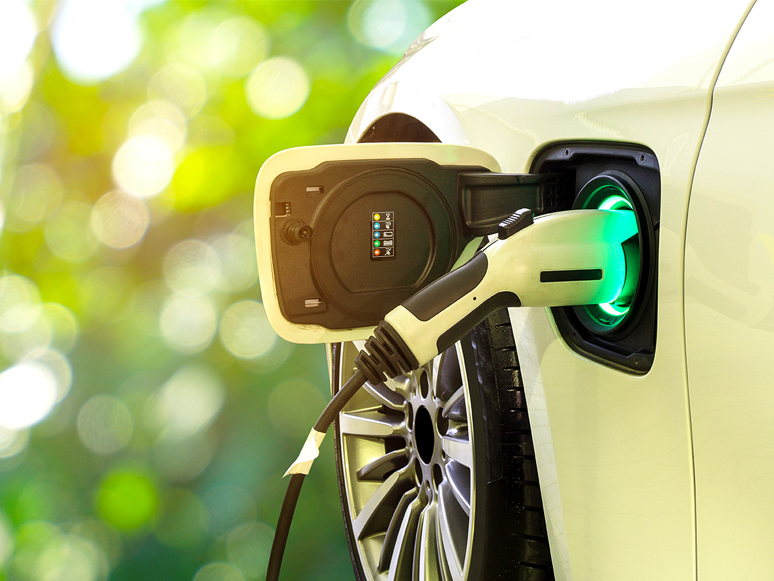logo


25th Mar, 2024

With the rise in businesses purchasing electric vehicles (EVs) for the use of their employees, the ATO has finalised its guidelines setting out the methodology for calculating the cost of electricity for FBT purposes when an eligible EV is charged at an employee’s or an individual’s home. The rate of 4.20 cents per kilometre now applies (from 1 April 2022 and for later FBT years). To use this rate, employers will need to keep a record of the distance travelled by the car, and a valid logbook must be maintained if the operating cost method is used.
In terms of FBT, the employer now has the choice of either using the methodology outlined in the guidelines or determining the cost of the electricity by determining the actual cost incurred. Once made, this choice applies to each vehicle for the entire year, although the choice can be changed from one FBT year to another.
A transitional approach applies for the 2022–2023 and 2023–2024 FBT years, whereby if odometer records have not been maintained, a reasonable estimate may be used based on service records, logbooks or other available information. After the transitional period ends, employers will need to keep a record of the distance travelled by each car and a valid logbook must be maintained if the operating cost method is used.
Employers are reminded that even if an EV is eligible for an FBT exemption, the benefit must still be included in an employee’s reportable fringe benefits amount. Therefore, the taxable value must be determined, and where the employee home-charged the EV throughout the year and paid their electricity bills and provided the employer with the necessary declaration for electricity costs, the home charging electricity cost will form a part of the recipient contribution amount.
23rd Aug, 2023

The ATO has extended its motor vehicles data matching program once again to encompass the 2022–2023 to 2024–2025 financial years. For each financial year, the ATO will acquire information from all eight of the state and territory motor registries regarding where a vehicle has been transferred or newly registered during the applicable period, and where the purchase price or market value is $10,000 or more. Records relating to approximately 1.5 million individuals will be obtained each financial year.
While the program is being used to obtain intelligence about taxpayers that buy and sell motor vehicles so the ATO can identify risks and trends of non-compliance with various tax and super obligations, the ATO will also be using the data obtained as an indicator of risk. For example, the motor vehicle data (along with other data) will be used to identify taxpayers who have purchased vehicles with values that don’t align with the income they have reported.
Other uses of the data will include identifying taxpayers who may have not met their obligations in terms of GST, FBT, luxury car tax, fuel schemes and income tax.
22nd May, 2023

With the increasing popularity and uptake of electric vehicles (EVs), the ATO has now released a draft compliance guideline which contains the methodology for calculating the cost of electricity when an eligible electric vehicle is charged at an employee’s or an individual’s home. The methodology can be applied for FBT from 1 April 2022 and for income tax purposes from 1 July 2022.
According to the ATO, the EV home charging rate will be 4.20 cents per kilometre. If charging costs are incurred at a commercial charging station, a choice must be made: if the EV home charging rate is used, the commercial charging station cost will be disregarded, and vice versa. However, records such as receipts must still be kept to substantiate any claims, and the choice to rely on the guideline applies for the entire FBT or income year.
For the 2023 FBT and income tax year, the ATO will accept a reasonable estimate based on service records, logbooks, or other available information where odometer records have not been maintained as a transitional measure. This approach is only available for the opening odometer reading at 1 April or 1 July 2022.
Businesses that can rely on this guideline include those that provide electric vehicles to their employees (or associates) for private use, where that results in the provision of a car fringe benefit, residual benefit or car expense payment fringe benefit and the business is required to calculate the value of benefit as a part of FBT obligations. For example, the EV home charging rate can be used to determine the recipient contribution component for the statutory formula method for car fringe benefits. Similarly, it can be used to determine both the operating cost and recipient contribution if the operating cost method is used.
For individuals, the guideline can only be relied on to calculate the cost of charging an electric vehicle if a zero emissions electric vehicle was used in carrying out income-earning activities and relevant records have been kept during the year.
The guideline is currently in draft form but is expected to apply to the 2023 FBT and income tax year.
11th Apr, 2023

It’s FBT time again, and for the 2022–2023 FBT year it’s important to remember that your business may be able to get an exemption for certain eligible electric vehicles made available for the private use of your employees.
To meet the conditions for exemption, the car must be either a battery electric vehicle, a hydrogen fuel cell electric vehicle or a plug-in hybrid electric vehicle used for the first time on or after 1 July 2022, even if it was held (owned or leased) before that date, and must be valued under the luxury car tax (LCT) threshold for fuel efficient cars.
For FBT purposes, motorcycles and scooters are not considered to be cars and therefore would not be eligible for the exemption even if they happened to be electric.
If an electric vehicle meets all of the conditions, car expenses such as registration, insurance, repairs and maintenance, and the fuel/electricity to charge cars, will also be exempt. However, a home charging station is not considered a car expense associated with providing a car fringe benefit, so those costs will not be exempt. Businesses will also need to include the value of any eligible electric cars benefits provided when working out whether an employee has a reportable fringe benefits amount.
11th Mar, 2023

Employers that have provided FBT car parking benefits for the 2022–2023 FBT year should be aware that the ATO has finalised the changes to its ruling on car fringe benefits – specifically on the concept of primary place of “employment”. A broad test of primary place of employment now applies. Considerations of whether a place is an employee’s primary place of employment may include where their duties are performed, the place at which is primary to the employee’s conditions of employment.
Determining the primary place of employment for FBT car parking purposes is important because, among other things, benefits are only fringe benefits taxable where a car is used by an employee to travel between home and their primary place of employment and is then parked at or in the vicinity of that primary place of employment.
The ATO is also working on a new area: a guideline for calculating electricity costs for FBT purposes when charging an employer-provided electric vehicle (EV) at an employee’s home. This is expected to be released sometime in March.
For an eligible EV that is exempt from FBT, car expenses such as registration, insurance, repairs/maintenance and fuel (including electricity to charge and run electric cars) are also exempt. However, providing a home charging station is not a car expense associated with providing a car fringe benefit, and may be a property or an expense payment fringe benefit.
11th Mar, 2023

As a part of its ever-tightening compliance net, the ATO has recently announced it is targeting specific tax avoidance behaviour in the not-for-profits sector.
The first area of focus is private foundations used to operate businesses or income-producing activities on which no tax is paid. This type of tax-avoidance scheme using not-for-profit foundations first surfaced in the 2015–2016 income year. The basic premise is that an adviser or promoter helps individuals to set up a “private foundation” which is claimed to be exempt from all taxes. The “private foundation” is then used by individuals to operate businesses or for income-producing activities. Unlike genuine not-for-profit foundations, individuals stream their untaxed employment, contractor or business income through their sham foundations, pay no tax on the income and use the funds for their own benefit. In some cases, a small portion of the income made may be paid to humanitarian or social causes, such as through charities, which is used as justification for the foundation’s purported tax-free status. The ATO is taking this matter seriously and has already commenced investigations of potential promoters.
The second area of focus is registered public benevolent institutions (PBIs) using schemes to avoid or reduce FBT. The ATO is concerned with arrangements where employees of PBIs are used to undertake charitable or commercial work activities of other entities that are not themselves benevolent in nature. The ATO will be reviewing these arrangements to determine if any have the sole and dominant purpose of avoiding or reducing FBT.